The Library of Ponta Delgada
Walking up from the Harbour of Ponta Degada, cross the church of Sant Sebastian, you get directly to the city library.
Basically it is divided into two sections:
A public area accessible to all and the regional archives.
The library's holdings include published documents acquired over time. It also contains a large number of published documents, the origin of which was once the result of wills or donation or deposit contracts. The private bookshops, newspapers and magazines, the general fund and the children's fund with azorean documentation are particularly noteworthy.
All the pride (you could say so) and thus of great importance is the very rare documentation from the early holdings of this public library, which concentrates on the records of monasteries and churches.
These archived documents contain documents from various institutions or persons whose foundation, deposit or donation is compulsory, testamentary, contractual or by purchase.
The most important of these are municipal, court and notarial funds, as well as family and economic archives, which are very important for the memory of the region and Sao Miguel.
Considering that few families once created large things here, you can assume that much was recorded in this time and could be found in the library.
The building is located right next to a beautiful little park and you can reach the harbour in 5-10 minutes.
The library is located in the building of the former Jesuit College of Ponta Delgada and now functions as a cultural centre with various cultural events and specials, there is a modern auditorium, and all kinds of media and technologies that are made available to readers.
The institution is considered a regional archive because of the richness and diversity of its funds and collections, in particular the funds of
José do Canto
Ernesto do Canto
Eugénio do Canto
Manuel Monteiro Velho Arruda
the library of José de Torres and the estate of Teófilo Braga, the library of Antero de Quental and also the Anteriana of Dr. José Bruno Carreiro and many others as one of the most important and significant at national level. That is supposed to mean something. An important library...
Let's take a look at the rare works, the library has five incunabula and collections of books from the sixteenth, seventeenth and eighteenth centuries, many are also from the ancient monasteries of the archipelago.
Also this library has secured some first editions and in addition still the kamonian collection.
The manuscripts of the "Saudades da Terra" by Gaspar Frutuoso (SJ), "Espelho Cristalino" by Brother Diogo das Chagas (OFM), "Crónicas da Província de S. João Evangelista das Ilhas dos Açores" by Br. Agostinho de Monte Alverne (OFM), to name only the most important in his extensive collection, can also be found in this inconspicuous library.
Your @LotusFleur
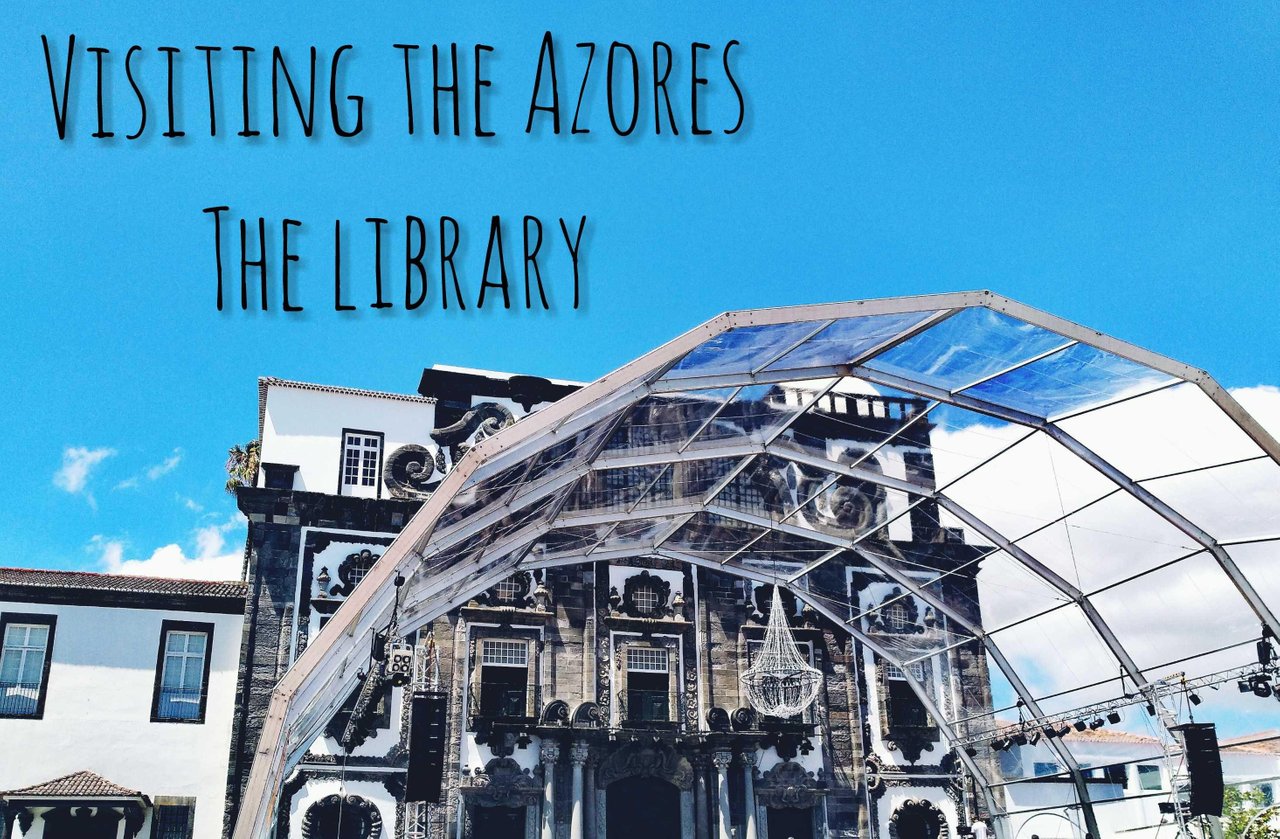
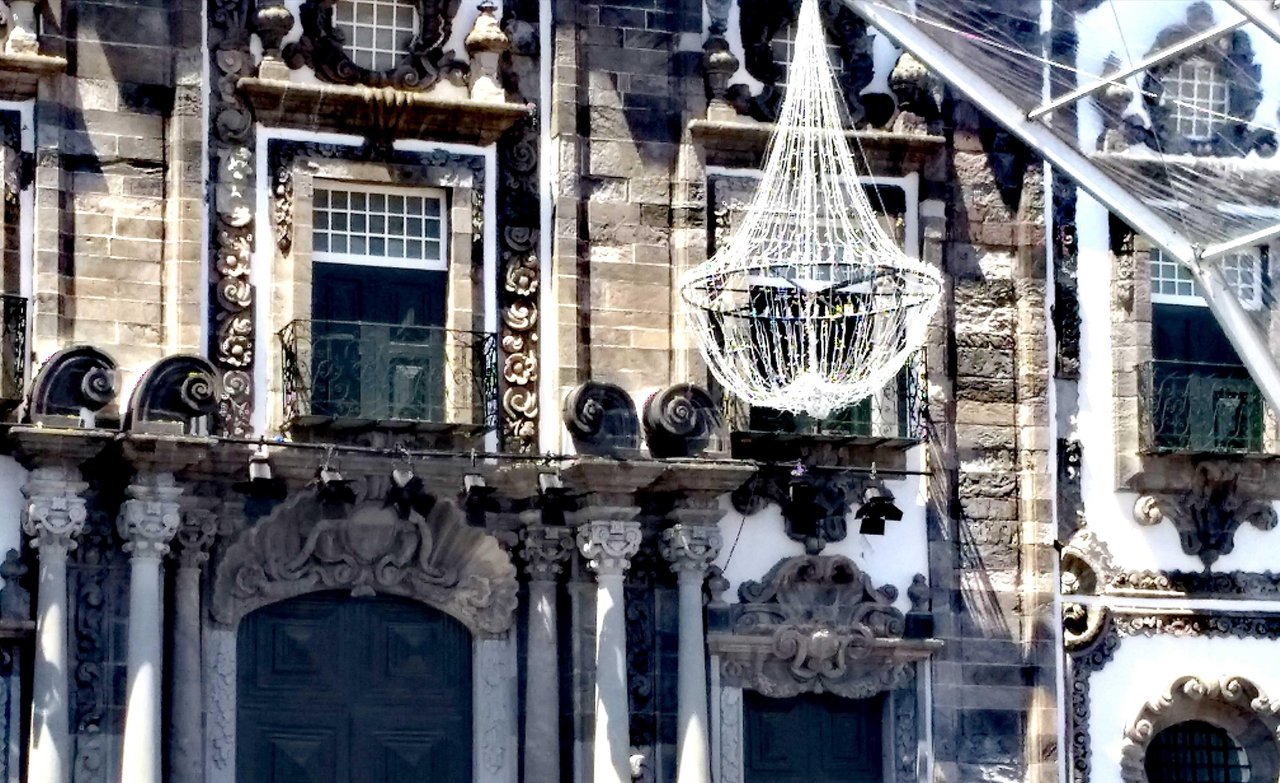
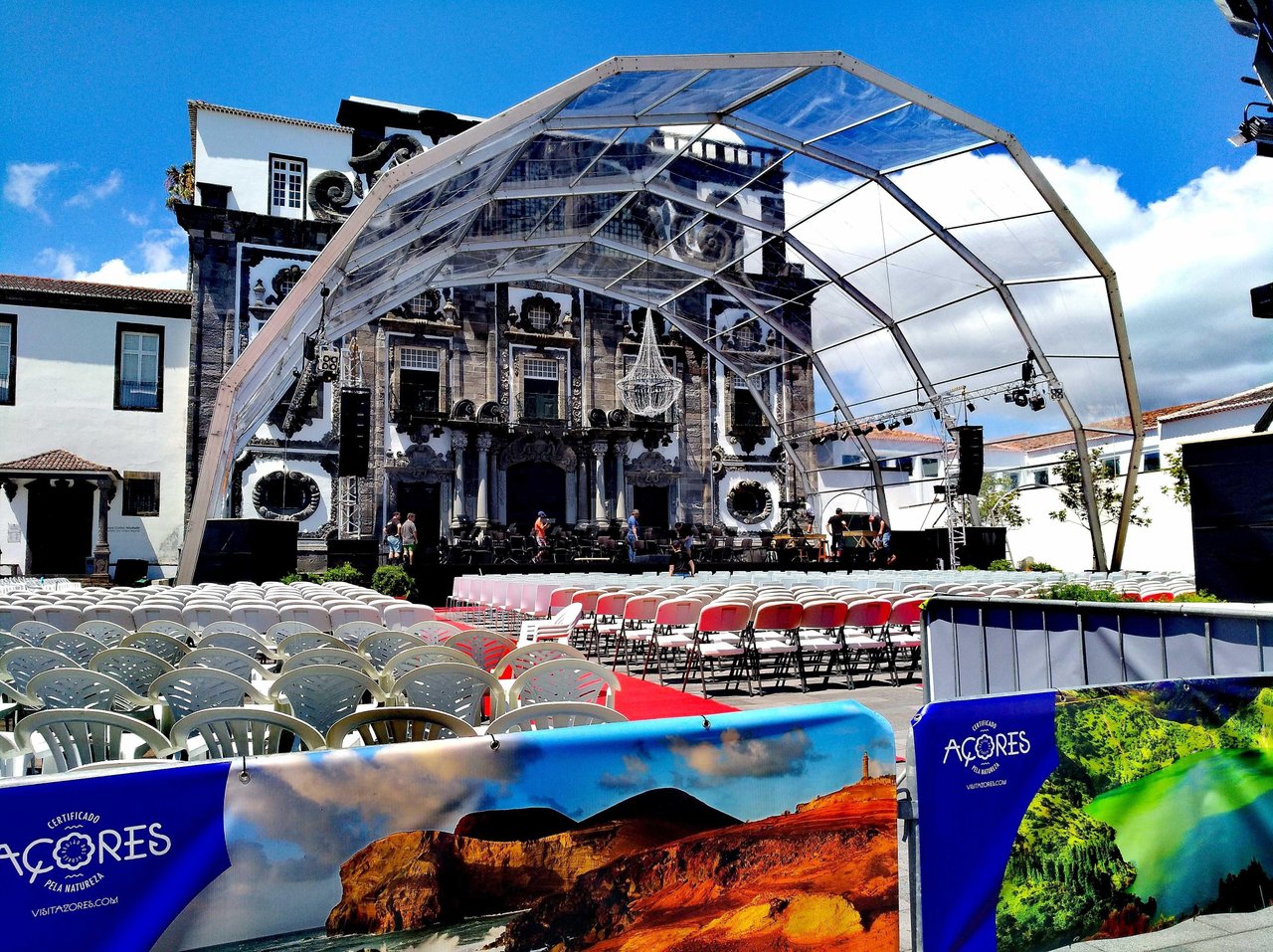
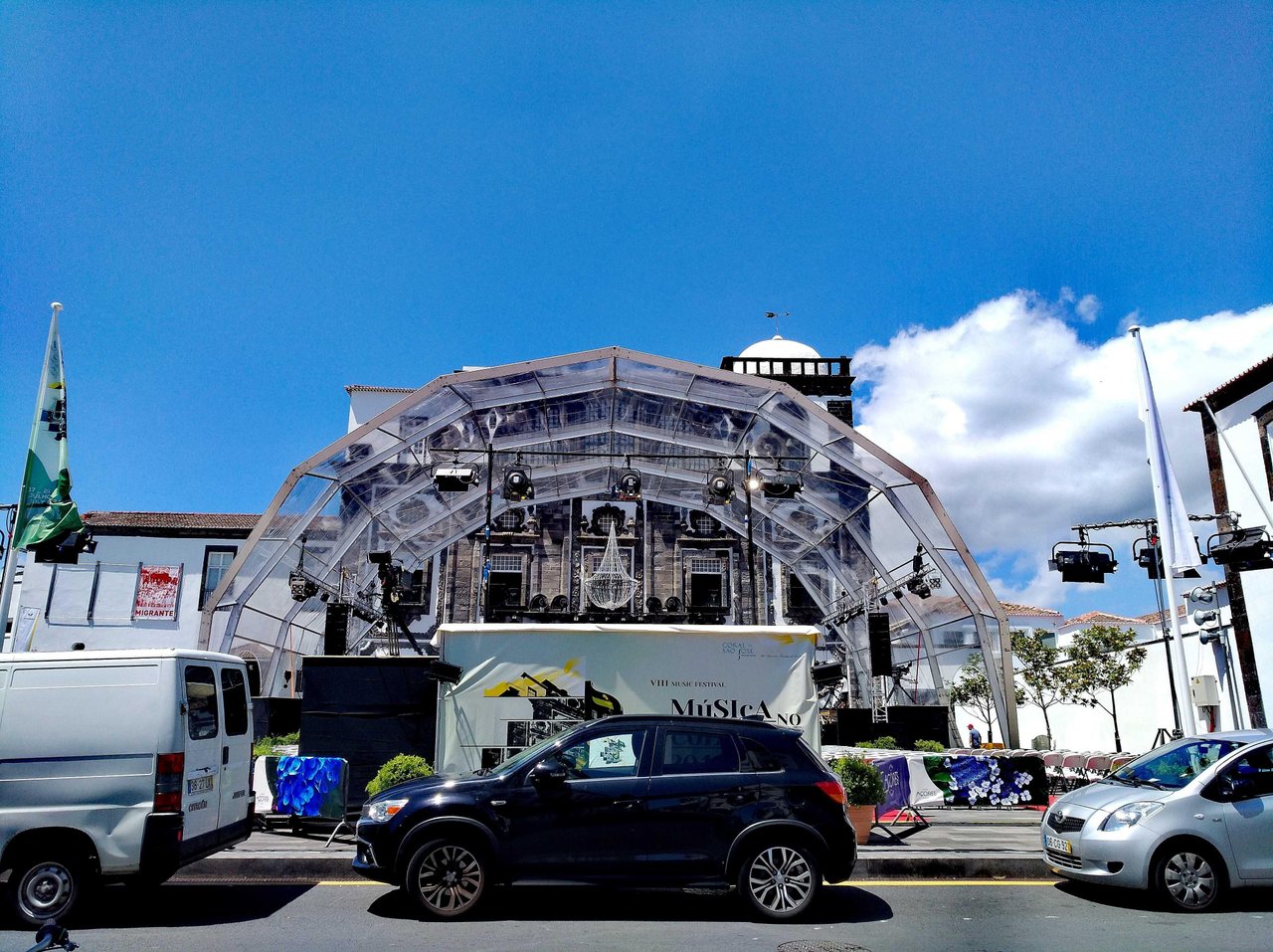
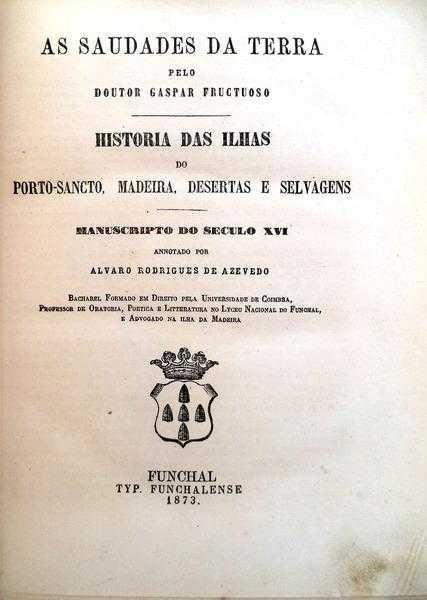
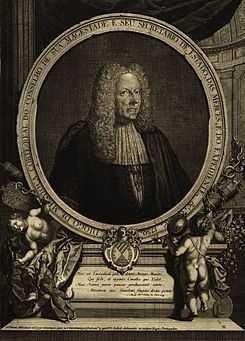
A Biblioteca de Ponta Delgada
Subindo do Porto de Ponta Degada, atravessando a igreja de Sant Sebastian, você chega diretamente à biblioteca da cidade.
Basicamente está dividido em duas seções:
Uma área pública acessível a todos e aos arquivos regionais.
O acervo da biblioteca inclui documentos publicados adquiridos ao longo do tempo. Contém também um grande número de documentos publicados, cuja origem foi outrora o resultado de testamentos ou contratos de doação ou depósito. Destacam-se as livrarias privadas, os jornais e revistas, o fundo geral e o fundo para crianças com documentação açoriana.
Todo o orgulho (pode dizê-lo) e, portanto, de grande importância é a rara documentação dos primeiros acervos desta biblioteca pública, que se concentra nos registos de mosteiros e igrejas.
Estes documentos arquivados contêm documentos de várias instituições ou pessoas cuja fundação, depósito ou doação é obrigatória, testamentária, contratual ou por compra.
Os mais importantes são os fundos municipais, judiciais e notariais, bem como os arquivos familiares e económicos, que são muito importantes para a memória da região e de São Miguel.
Considerando que poucas famílias já criaram grandes coisas aqui, pode-se supor que muito foi registrado neste tempo e pode ser encontrado na biblioteca.
O prédio está localizado ao lado de um belo parque e você pode chegar ao porto em 5-10 minutos.
A biblioteca está localizada no edifício do antigo Colégio Jesuíta de Ponta Delgada e funciona agora como um centro cultural com vários eventos culturais e especiais, um moderno auditório e todo o tipo de meios e tecnologias que são disponibilizados aos leitores.
A instituição é considerada um arquivo regional devido à riqueza e diversidade dos seus fundos e colecções, em particular os fundos de
José do Canto
Ernesto do Canto
Eugénio do Canto
Manuel Monteiro Velho Arruda
a biblioteca de José de Torres e o espólio de Teófilo Braga, a biblioteca de Antero de Quental e também a Anteriana do Dr. José Bruno Carreiro e muitas outras como uma das mais importantes e significativas a nível nacional. Isso é suposto significar alguma coisa. Uma biblioteca importante...
Vejamos as obras raras, a biblioteca tem cinco incunábulos e colecções de livros dos séculos XVI, XVII e XVIII, muitos também dos antigos mosteiros do arquipélago.
Também esta biblioteca assegurou algumas primeiras edições e, além disso, ainda a coleção kamoniana.
Os manuscritos das "Saudades da Terra" de Gaspar Frutuoso (SJ), "Espelho Cristalino" do Irmão Diogo das Chagas (OFM), "Crónicas da Província de S. João Evangelista das Ilhas dos Açores" do Irmão Agostinho de Monte Alverne (OFM), para citar apenas os mais importantes da sua extensa colecção, encontram-se também nesta discreta biblioteca.
Seu @LotusFleur
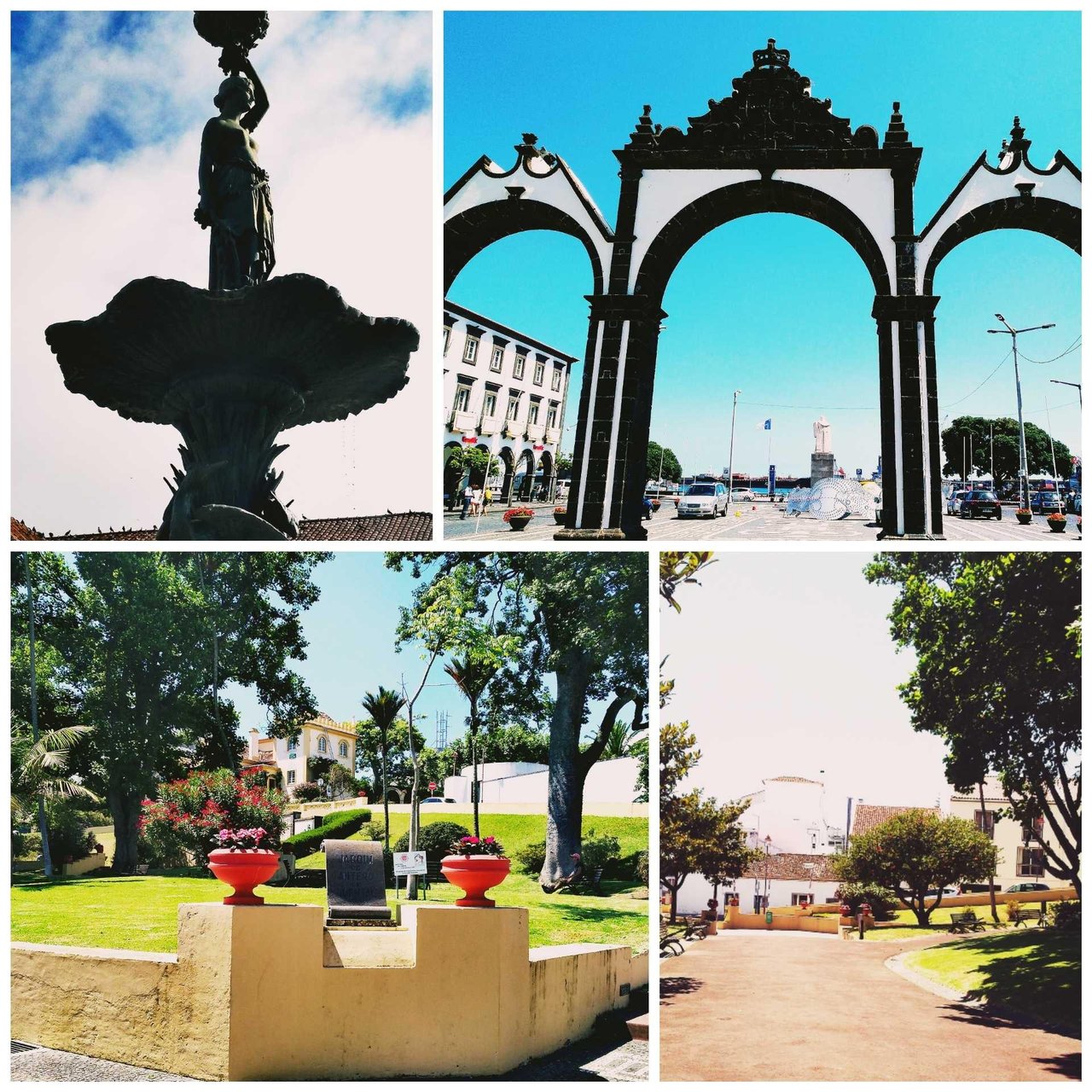
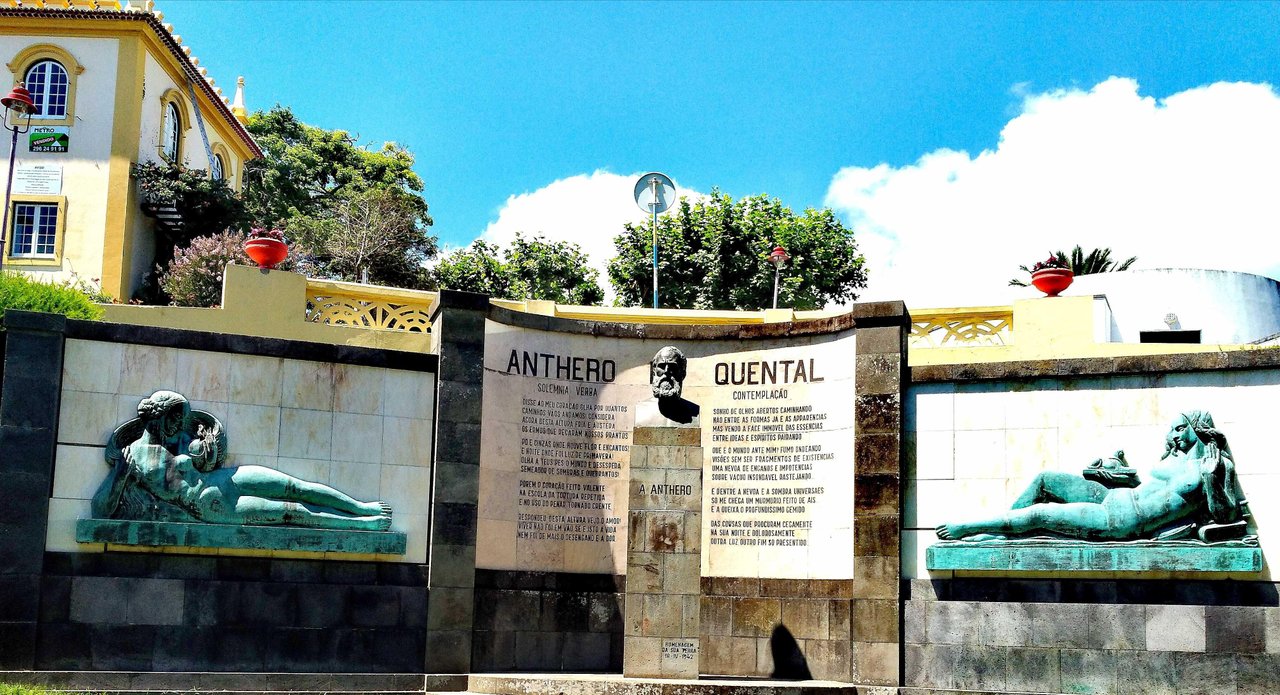
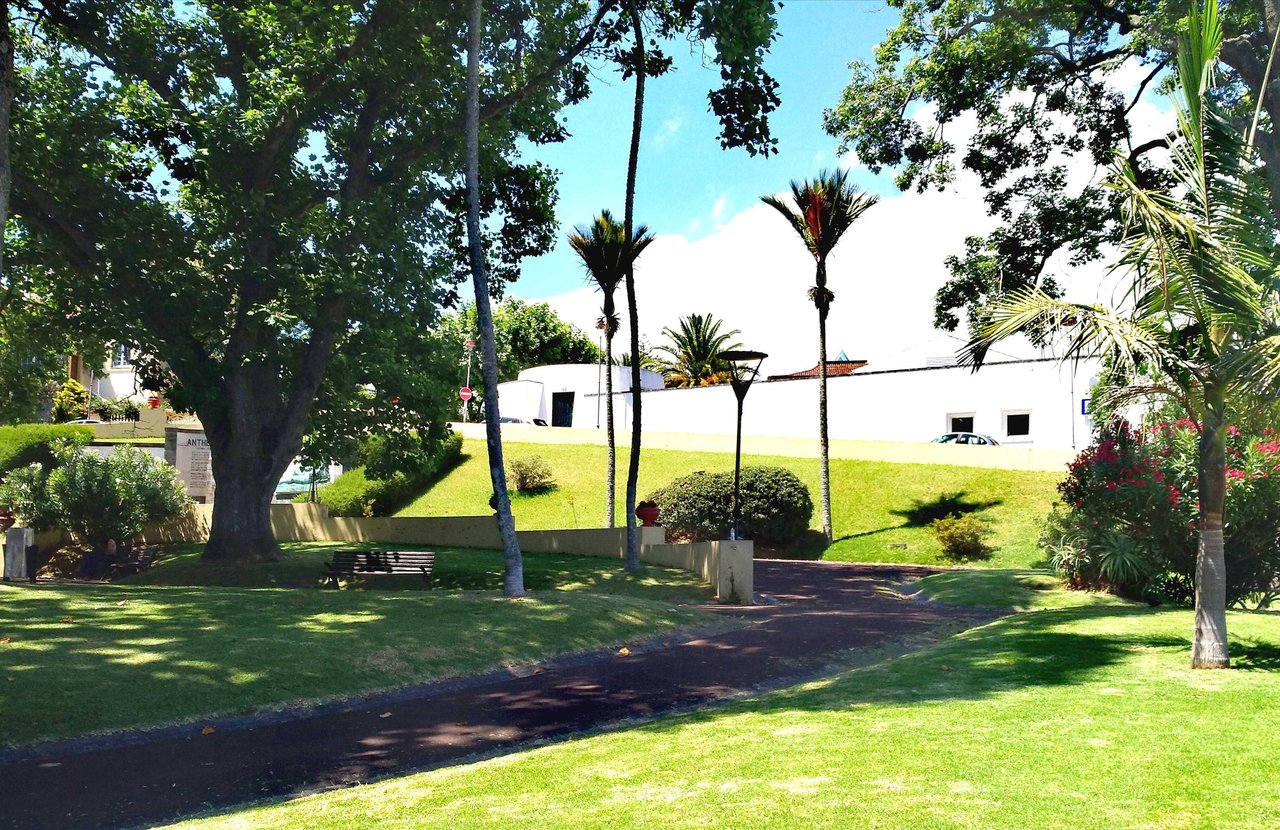
Die Bibliothek von Ponta Delgada
Läuft man vom Hafen Ponta Degadas, an der Kirche Sant Sebastian weiter hoch, gelangt man direkt zur Stadt Bibliothek.
Im Grunde ist diese in zwei Abteilungen unterteilt:
Ein öffentlicher Bereich, der allen zugänglich ist und das Regionalarchiv.
Der Bestand der Bibliothek umfasst veröffentlichte Dokumente, die über die Zeit erworben wurden. Ebenso umfasst diese auch eine große Anzahl veröffentlichter Dokumente, deren Ursprung das Ergebnis von Testamenten oder Spenden- bzw. Depotverträgen einst war. Hervorzuheben sind die privaten Buchhandlungen, Zeitungen und Zeitschriften, der allgemeine Fonds und der Kinderfonds mit azoreanischer Dokumentation.
Der ganze Stolz (so könnte man es ausdrücken) und somit von großer Bedeutung ist die sehr seltene Dokumentation aus dem Anfangsbestand dieser öffentlichen Bibliothek, denn diese konzentriert sich auf die Aufzeichnungen der Klöster und Kirchen.
Diese archivierten Dokumentationen beinhalten Dokumente von verschiedenen Institutionen oder auch Personen, deren Gründung, Hinterlegung oder Schenkung zwingend, testamentarisch, vertraglich oder durch Kauf hervorgegangen ist.
Hervorzuheben sind Gemeinde-, Gerichts- und Notargelder sowie Familien- und Wirtschaftsarchive, die für das Gedächtnis der Region und Sao Miguel sehr wichtig sind.
Bedenkt man das hier einst wenige Familien großes erschaffen haben, kann man davon ausgehen, dass über diese Zeit viel festgehalten wurde.
Das Gebäude liegt gleich an einem schönen, kleinen Park und man kann den Hafen in 5-10 Minuten erreichen.
Die Bibliothek befindet sich im Gebäude des ehemaligen Jesuitenkollegs von Ponta Delgada und fungiert mittlerweile als Kulturzentrum mit verschiedenen kulturellen Events und Specials, es gibt ein modernes Auditorium, und alle Arten von Medien und Technologien, die den Lesern zur Verfügung gestellt werden.
Als regionales Archiv gilt die Institution aufgrund des Reichtums und der Vielfalt ihrer Fonds und Sammlungen, insbesondere der Fonds von
José do Canto
Ernesto do Canto
Eugénio do Canto
Manuel Monteiro Velho Arruda
der Bibliothek von José de Torres und des Nachlasses von Teófilo Braga, der Bibliothek von Antero de Quental und auch der Anteriana von Dr. José Bruno Carreiro und noch vielen anderen als eine der wichtigsten und bedeutsamsten auf nationaler Ebene. Das soll schon etwas heißen. Eine wichtige Bücherei halt...
Nehmen wir die seltenen Werke unter die Lupe, die Bibliothek hat fünf Inkunabeln und Sammlungen von Büchern aus dem sechzehnten, siebzehnten und achtzehnten Jahrhundert, viele sind auch aus den alten Klöstern des Archipels.
Ebenfalls hat diese Bibliothek einige Erstausgaben gesichert und dazu noch die kamonische Sammlung.
Auch die Manuskripte der "Saudades da Terra" von Gaspar Frutuoso (SJ), "Espelho Cristalino" von Bruder Diogo das Chagas (OFM), "Crónicas da Província de S. João Evangelista das Ilhas dos Açores" von Br. Agostinho de Monte Alverne (OFM), um nur die wichtigsten in seiner umfangreichen Sammlung zu nennen, findet man in dieser unscheinbaren Bibliothek.
Eure @LotusFleur
text and pictures made by myself. Peace

Script source: https://images.app.goo.gl/4Q8sbBzna91WuDr56
https://images.app.goo.gl/zFqcEnRa8Gep67b97
https://pt.m.wikipedia.org/wiki/Hist%C3%B3ria_dos_A%C3%A7ores
#travel #portugal #austria #steemit-deutsch #steemit-austria #streets #streetphotography #blog #life #lifestyle #de-travelfeef #island #fff #steemitblogger #history #books
View this post on TravelFeed for the best experience.
